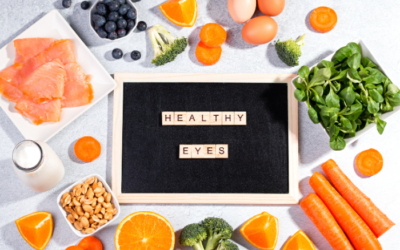10 Ways to Support Brain Health
1 Challenge your brain daily
Mental stimulation has been found to stimulate new connections between nerve cells, which may help generate new cells and help, stop the loss of cells and develop neurological “plasticity.” Cognitive aging is natural, but we can help keep our cognitive skills and brain function, including memory, focus, and critical thinking, by stimulating our brain. Easy ways to challenge your brain include:
- Puzzles
- Word games
- Learn a language
- Math problems
- Drawing or Painting
- Take a class to learn something new.
2 Omega-3 and your brain
The brain contains 60% fat, and the brain needs omega-3s to function and develop. The omega-3s DHA and EPA are crucial to brain health; DHA is the most abundant fatty acid in the brain. DHA is essential in nerve cell structure and function, and EPA is vital to regulating cellular inflammation. DHA and EPA are responsible for how the brain develops, processes, and preserves as we age.
When we don’t get enough omega-3s in our diet, it can impair brain performance and disease. Omega-3s also help with neurological conditions, including bipolar disorder, anxiety, ADHD, Alzheimer’s disease, dementia, and depression.
How omega fatty acids help the brain
- Preserve cell membrane function
- Support communication between neurons
- Assist with the synthesis and process of neurotransmitters
- Support normal brain blood flow
- Help with the growth of brain tissue
- Support cognitive function
- With memory
3 Exercise your body for your brain
Did you know that physical activity can change your brain structure? Exercise can help protect our brain function, boost our memory, and increase brain volume. Research has found that regular exercise, even just walking, can improve our memory function and increase the protein BDNF or brain-derived neurotrophic factor in the bloodstream. Crucial for healthy cognitive function, BDNF changes our brain’s ability to change and adapt, cell survival, memory, and develops new neurons in the brain. Exercise also boosts the blood flow, which the brain uses– up to 15% of our body’s supply.
4 Eat for your brain
Eating a diet full of whole foods that contain lots of vitamins, minerals, essential fatty acids, and antioxidants is an excellent approach to brain nutrition. Studies show that diets including the Mediterranean diet and a traditional Japanese diet lower the risk of depression and lower the number of toxins and ‘bad’ bacteria in your intestines. Allowing your microbiome or “good” bacteria to do its job and reduce inflammation, keep your mind free of brain fog, and help your neurons function correctly. Limiting refined sugars and processed foods is also crucial to brain health.
Foods for your brain
- Fatty fish with omega-3s
- Eggs
- Coffee
- Green tea
- Blueberries
- Turmeric
- Broccoli
- Pumpkin seeds
- Dark chocolate
- Walnuts
- Oranges
5 Positive thinking
Positive thinking can change the chemistry in your brain and brain cells. For example, when we are happy and feel joy, our body lowers cortisol and creates serotonin – this, in turn, allows our brains to be calm, less anxious, focus more, and stabilize our emotions. In addition, positivity impacts the brain’s prefrontal cortex, activates it, and heightens cognitive skills like creative thinking, intellectual adaptability, and our ability to process information. The benefits of positive thinking include:
- Increases mental productivity
- Improves thinking skills
- It helps us analyze data
- It helps us solve problems
- Boosts creativity
- Increases our ability to focus.
6 Practice mindful meditation and emotional regulation
Mindful meditation has been shown to help change brain structures and activity in regions of the brain that are linked to attention and emotion regulation. In addition, researchers found that people who practiced were less likely to react with negative thoughts in times of stress.
As we age, our ability to regulate our emotions improves. Emotional regulation is a simple process that many of us already engage in. Engaging in emotion regulation can help with memory training, attention control, and mental health.
7 Get those ZZZs
Sleep is essential for many brain functions, including how our neurons communicate. While we aren’t sure why we sleep, we know our brain has trouble functioning well without it. Sleep is crucial for forming pathways in the brain, learning, and creating new memories. It isn’t easy to concentrate without sleep, and our response is slower.
8 Add antioxidants and anti-inflammatory supplements to your routine
Studies show that oxidative stress may play a role in the brain, and this may cause free radicals to “attack” brain cells and cause oxidative damage. Oxidative damage is thought to be one of the possible causes of dementia and Alzheimer’s disease.
Vitamin C
Vitamin C helps fight free radicals that damage brain cells and supports brain health with powerful antioxidants.
Green tea
Boost brain function improves alertness, performance, memory, and focus.
Polyphenol-rich diet
Polyphenols are found in vegetables, fruits, and drinks like wine, juice, and tea. Studies show that polyphenols can protect neuronal cells by “attenuating oxidative stress and damage.”
Neuroinflammation coordinated by our immune cells in the brain – microglia and astrocytes – are meant to protect our brain from injury and infection. However, these immune cells can be triggered too often by various factors causing neuroinflammation too often. “Scientists have linked neuroinflammation with cognitive decline and higher risks for age-related cognitive impairment.”
Curcumin
The active ingredient in turmeric, curcumin, crosses the blood-brain barrier, is a powerful antioxidant, improves memory, boosts serotonin and dopamine, and helps new brain cells grow.
Ginger
Gingerol and zingerone are the two components of ginger that help reduce inflammation.
Spirulina
A blue-green algae has potent antioxidant and anti-inflammatory properties, anti-aging properties, and immune support.
9 Take a mineral supplement
Zinc
Zinc is a trace mineral crucial for nerve function, and zinc deficiencies have been linked to Alzheimer’s disease and Parkinson’s disease.
Iron
Often, a deficiency of iron results in brain fog and impaired brain function.
Magnesium
Your brain needs magnesium for learning and memory.
 10 Nootropics for cognitive support
10 Nootropics for cognitive support
Nootropics are cognitive enhancers – bio-hacking the brain for better function, including clear thinking and improved focus. All these terms may seem futuristic, but actually, they are quite simple and have been around for decades. Many are adaptogens found in many traditional medicines worldwide, and others were already around, perhaps even in your last cup of tea!
Nootropics are simply compounds that support optimized cognitive function. Productivity, focus, and thinking all get a boost. Memory, motivation, and mood are also elevated. Nootropics are any food or compound that can improve mental abilities. So while that second or third cup of coffee may seem like a good idea, there is a better way to stay alert with cognitive support without the jitters. Nootropics can help our brains and bodies re-fuel and help us get back on track with a renewed spirit and brainpower.
L-Tyrosine
Converts excitatory catecholamine neurotransmitters, which tend to decrease when under stress and increased activity. It has been found that taking L-tyrosine while under stressful circumstances when energy reserves are low will have the best results.
B Vitamins
Vitamins B6 and B12 help improve circulation, including in the brain. They also reduce homocysteine, a form of amino acid methionine that can lead to plaque buildup in the arteries and heart disease. The B vitamins are required by your body to produce energy from your diet and support normal brain function.
Panax Ginseng
Used in traditional Chinese medicine for thousands of years for all kinds of health conditions and improving memory and reducing fatigue. Panax ginseng also helps increase attention to tasks.
Gingko Biloba
This herb also has been used in TCM for thousands of years and used traditionally for mental clarity, improved circulation, memory recall, and increased serotonin secretion. Focus, increased learning ability, and more decision-making control are all critical to cognitive function at optimal levels.
L-Theanine
L-Theanine is a naturally occurring amino acid found primarily in green tea leaves. It is known for its nootropic properties, including calming, memory boost, and increased learning ability. Sipping green or oolong tea, where L-Theanine can be found, can help de-stress, and it can also increase dopamine and serotonin levels in the brain for a feel-good effect boosting your energy and sense of well-being.
Bacopa Monnieri
Bacopa is an adaptogen and nootropic herb native to India and helps the body adapt to stress. Traditionally used in Ayurvedic medicine for longevity and cognitive enhancement, Bacopa has been found to improve attention and memory, and mood. To truly reap the benefits, a dose of at least 750 mg daily is best and a source of fat to increase absorption.

Jemile earned a degree in Food Studies and Writing and has worked for almost 23 years in the medical and health industries. She has been a digital marketing consultant for Acupuncture Atlanta since 2011 as the social media manager and content manager. Writing has been a childhood dream for Jemile and writing daily for clients in the health, wellness, food, and art industries have been phenomenal. Jemile is originally from Brooklyn, NY, and lives in the Hudson Valley, NY. She lives with her husband, two daughters, her dog, and two fish. You can contact Jemile via Linkedin, her mom blog, or her website, lunaroseconsulting.com





